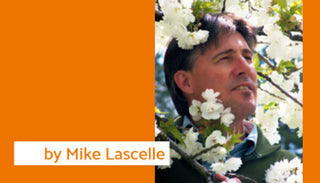There are a lot of things in life that we can live without but bees aren’t one of them. A world without honey bees (Apis mellifera) and wild pollinators (bumble bees, mason bees, sweat bees, leafcutter bees, and hoverflies…among others) would be one where the food chain as we know it, totally collapses. According to the United Nations, bees are responsible for pollinating 71 of the 100 crops that provide 90% of the world’s food. Just a few of the fruits and vegetables that you would no longer find at your local supermarket without pollination would include apples, cherries, cucumbers, onions, almonds, blueberries, and most citrus fruits like oranges and grapefruit.
It should also come as no surprise that the same things that are currently affecting humans such as air pollution, loss of natural habitat, residual pesticides or industrial waste, and climate change (the heat dome also killed a lot of drones) are also affecting our pollinating friends. Then there’s the Varroa mite, a tiny pest that only reproduces in a honey bee colony and lives by literally sucking nutrients out of the bees, weakening them, and also spreading destructive viruses. As a result of this, Colony Collapse Disorder is becoming far too common here in Canada, with losses in parts of Ontario this spring reaching upwards of 90% for some beekeepers. When all these stressors are added together, things aren’t looking particularly hopeful for their future, which is closely tied to ours.
So, what can you do to make this world a better place for bees? A lot, actually, and it’s not that hard — just choose from one (or more) of the 10 tips below.
1. Plant Herbs
Bees adore herbs in bloom and most of our staples like chives, oregano, marjoram, rosemary, mint, sage, thyme, dill, fennel, and lemon balm are great sources of both pollen and nectar.
2. Limit Pesticide Use
Limit your pesticide use (even organic types), particularly when bees are foraging open flowers.
3. Keep Bees Hydrated
Keep your bees hydrated during the summer heat by providing a water source such as a trickling fountain, a birdbath with some protruding river rocks for them to land on, or even a small container pond with floating plants.
4. Buy Local Honey
Buy local honey as this supports the beekeepers who rent their hives to pollinate crops (such as blueberries) grown in our community. It not only tastes better but you won’t get the antibiotics, heavy metals, and sweeteners (used to dilute it) often found in the cheaper imported honey.
5. Plant Bees' Favourite Colours
If you have very limited space, then plant the bee’s favourite colours, which have been scientifically proven to be blue, violet, and purple flowers. Did you see our Instagram reel about this?
6. Plant Groundcovers Instead of Lawn
Replace your European Chafer-ridden lawn with flowering groundcovers such as thyme (‘Elfin’, ‘Pink Chintz’, Creeping Red), blue star creeper (Isotoma), Corsican mint, Ajuga reptans, or Cotoneaster dammeri.
7. Plant Foraging Perennials
Plant a few of their favourite foraging perennials, which include lavender, rudbeckia, sea holly, catmint, liatris, foxglove, milkweed, Russian sage, coneflower, lupine, scabiosa, sedum, aster, bee balm, anise hyssop, Joe-pye weed, peony, hollyhocks, astrantia, and salvia — to name just a few.
8. Provide Long-Term Accommodation

Provide long-term accommodation by erecting a nesting box or bee lodge in your garden for all of your wild pollinators.
9. Help to Preserve Native Flora

Lobby your local municipality to preserve native flora found within parkland as these species are critical components of the local ecology, and plants such as Oregon Grape (Mahonia aquifolium) are an important bumblebee forage.
10. Choose Summer Flowers Wisely

Choose your summer flowers wisely as many such as calendula, sunflower, cosmos, zinnia, sweet alyssum, lantana, annual salvia, and heliotrope will keep both you and the bees very happy!
So, as you can see, it’s really not that hard to have a beautiful garden and still have a safe haven for our pollinating friends.


